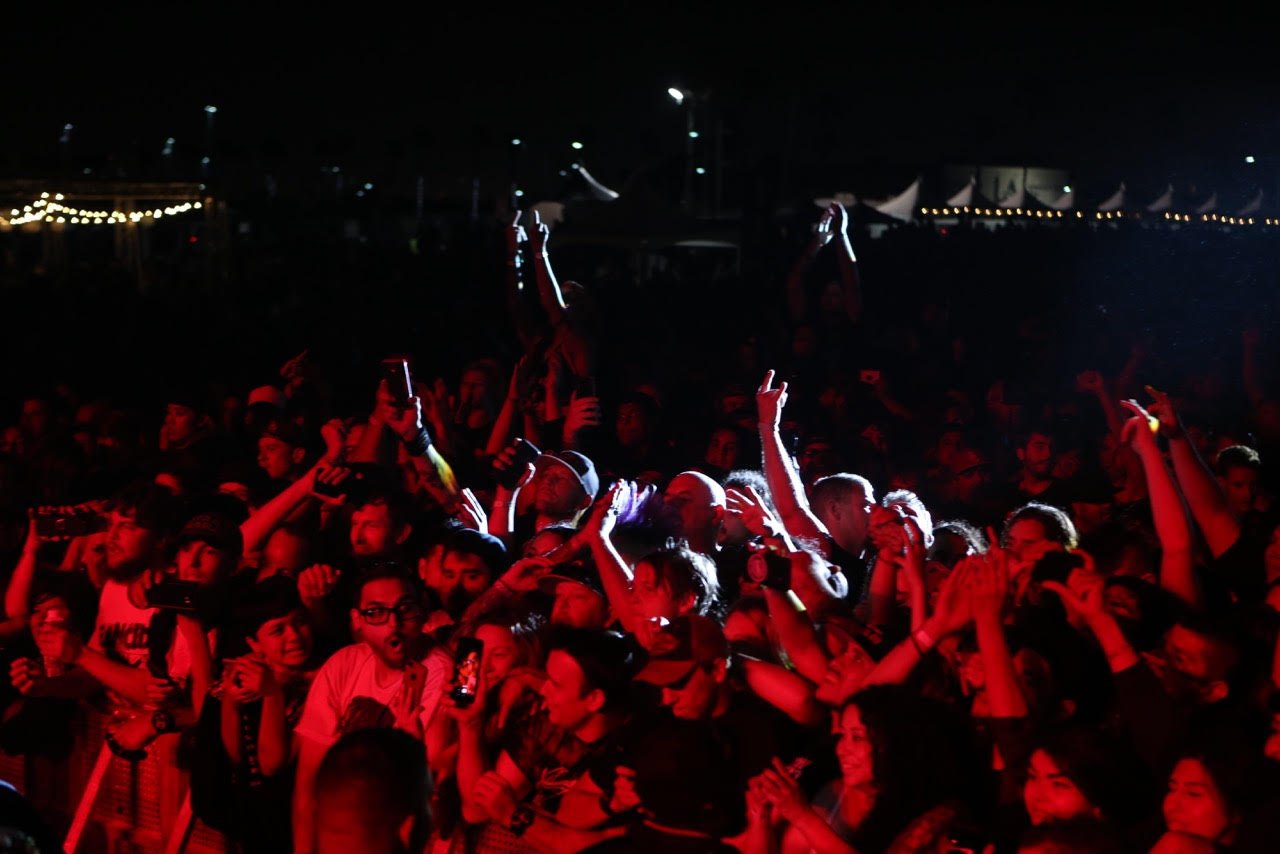

JELLO BIAFRA

JELLO BIAFRA
BIOGRAPHY
JELLO BIAFRA: A BIOGRAPHY
1958: Biafra born and raised in Boulder, Colorado, six blocks from the JonBenet Ramsey murder site. So far, he has not been named as a suspect.
November 1963: JFK assassinated on a day Biafra remembers well. Biafra sees Oswald get shot live on the living room TV (See last track, Beyond the Valley of the Gift Police).
Fall 1965: Biafra hears rock and roll for the first time when his parents tune into a rock station by mistake. He is immediately hooked, and knows what he wants to be when he grows up.
1966: Biafra encounters his first rock star. Bob Demmon, leader of the surf-garage legends The Astronauts, shows the second grade class his Alaskan malamute dog (Bob’s mother worked in the school office).
1966-68: Biafra idolizes Batman villains while his classmates want to be baseball players, nurses and policemen.
-
1969-72: The Vietnam War, Chicago 7 trial, Kent State massacre, and the Denver smog problem convince Biafra that corrupt, violent governments and corporations should be fought, not trusted.
1970: Fall of the Republic of Biafra: Ibo people’s war for independence is crushed by the Nigerian army. With British and some American help, all Biafran food supplies have been cut off for months. Horrific, jarring images of skeletal Biafran children dying from hunger make “Biafra” the universal symbol of starvation and genocide until the Ethiopian famine 15 years later.
January 1977: Biafra sees The Ramones horrify an audience of the pre-yuppies he loathes at Ebbets Field nightclub in Denver. He decides there must be more to life than listening to Judas Priest and committing suicide. He roadies for the first Colorado punk band, The Ravers, who would later move to New York and become The Nails (of “88 lines About 44 Women” fame).
Fall 1977: Biafra enrolls in University of California at Santa Cruz, where he studies acting and the history of Paraguay. After seeing very early gigs of The Saints, Wire, etc. in London that summer, Biafra discovers that the early San Francisco punk scene (Avengers, Dils, Zeros, etc.) is far more raw and primal than anything he has seen so far. Its epicenter is Mabuhay Gardens, an all ages venue run by Dirk Dirksen. Biafra leaves school after one quarter.
February 28, 1978: Biafra saves up by taking a job doing laundry in a nursing home in Boulder, Colorado and returns to San Francisco.
July 19, 1978: Dead Kennedys live debut performance after rehearsing for one week. After initially calling himself “Occupant”, Jello Biafra picks his name at random out of a notebook. Years later, he says he chose it because he “likes the way the two images collide in people’s minds.”
June 1979: Dead Kennedys release their first single “California Über Alles” on their own label, Alternative Tentacles. An East Coast tour follows, which is almost unheard of in those days for a West Coast underground band. Compared to the primal pogo frenzy of the West Coast, the scene there is almost comatose, largely due to the lack of all ages venues. Audiences expecting to sit quietly and clap find themselves showered with their own beer as their tables and chairs are knocked away. Max’s Kansas City looks like a tornado went through it. At the Rat in Boston, people line up against the back wall, as far away from the band as possible, but they don’t leave. This may be Biafra’s favorite Dead Kennedys show of all time.
Fall 1979: Biafra runs for Mayor in San Francisco. He finishes fourth out of ten candidates with 6,591 votes, 3.5% of the total, and helps to force a run-off. Mayor Dianne Feinstein’s supporters are aghast (For the full story, see Biafra’s third spoken word album, I Blow Minds for a Living).
Biafra also performs nude before 3,000 Clash fans and an infuriated Bill Graham. DKs never play for Bill Graham Presents again.
“California Über Alles” is re-released in England on the hot label-of-the-moment, Fast Product (Gang of Four, Mekons, Human League). By sheer luck, a band barely known in its own back yard is an overnight sensation in the U.K.
Fall 1980: Riding the wave of follow-up smash single “Holiday in Cambodia,” Dead Kennedys release their debut album Fresh Fruit for Rotting Vegetables. They are the first non-major label US punk band to successfully tour England and Europe. Many people Biafra meets are rabidly curious about what else lurks musically in the United States. The “punk is dead” media and the UK record labels don’t care.
In a London apartment, Biafra records an improvisational EP The Witch Trials with Christian Lunch and other friends.
Spring 1981: Alternative Tentacles re-launches with the Let Them Eat Jellybeans compilation, designed to introduce North American bands such as D.O.A., Black Flag, Flipper, Bad Brains, Half Japanese and even Voice Farm, among many others to Europe and the world at large. The European underground is never the same again. Hardcore punk breaks out and spreads throughout the industrialized world.
The label also releases the DKs’ “Too Drunk to Fuck” single, featuring new drummer D.H. Peligro. The British tabloid press goes ballistic; some storeowners are arrested. The industry fears that the single will reach the top 30 of the national charts, thus mandating a performance of the song on BBC TV’s Top of the Pops. It peaks at #31.
Jellybeans helps create the same effect in the United States. Black Flag and D.O.A. stitch together national tours, while the biggest splash is the East Coast return of Dead Kennedys. Jaded New York music press dismisses the DKs’ all ages matinee at Bond’s as a “cheap gimmick.” Several generations of musicians later report that being at that show was the baptism that made them want to start a band. New York and the East Coast are never the same.
Fall 1981: Dead Kennedys release In God We Trust, Inc EP and ”Nazi Punks Fuck Off” single. The music is faster and more extreme, reflecting the youthful hardcore energy coming out of California and Washington, DC. Lyrics and packaging are gut-rage responses to the rise of the religious right, violence in the underground scene, and the “election” of Ronald Reagan. Almost every dire exaggeration in the lyrics has since come true.
More touring in Britain and Europe follows, with particularly wild shows in Italy and Finland. D.I.Y. hardcore EPs mushroom in these countries a few months later.
Spring-Summer 1982: US hardcore explosion in full swing. Legwork by Black Flag, Dead Kennedys, D.O.A. and Minor Threat establishes solid nationwide touring network through D.I.Y. underground promoters who completely avoid the still-hostile music establishment. Harassment by police is an increasing problem. Denver cops try to confiscate the band’s equipment, but give up when asked to carry the amps themselves.
Alternative Tentacles continues to grow and penetrate with classic releases by D.O.A., T.S.O.L., 7 Seconds; and in the UK, Bad Brains and Hüsker Dü.
Fall 1982: Dead Kennedys release second full-length Plastic Surgery Disasters to decidedly mixed reviews. For the third time in a row, fans are confronted with different sounds than they expected. Another Euro visit follows, this time concentrating on Germany.
1983: Places to go, people to annoy. US touring for Plastic Surgery Disasters culminates in Rock Against Reagan on the National Mall in DC, one day before the infamous 4th of July James Watt concert (Beach Boys cancelled in favor of Wayne Newton). Under clear skies, a U.S. government helicopter floodlights DKs’ audience and photographs them when their faces look up. Torrential rains the next day delay Wayne Newton concert for several hours.
Dead Kennedys also crack open Australia, finding a much more diverse scene than narrow-minded macho US hardcore audiences will allow. Most bizarre of all is Adelaide’s Grong Grong whose singer screams at the audience wearing a baklava and a cowboy hat. Their album is later released on Alternative Tentacles. The Aussies take on Detroit/garage rock at its peak, and Biafra absorbs their sounds accordingly, being possibly the first person to bring their records into the United States.
1984: More live mayhem brings Dead Kennedys to guerrilla performances outside both the Democratic and Republican conventions. Republicans in Dallas are greeted by a Biafra-led crowd chanting “Fuck off and die!” as they flee the hall for their hotel rooms. A mass die-in at Neiman Marcus and the notorious Joey Johnson flag-burning case that winds up in the Supreme Court add to the festivities.
At the Democratic convention in San Francisco, Dead Kennedys take the stage in Klansman hoods, then remove them to reveal Ronald Reagan masks underneath. A thousand people break away from the crowd to march to City Hall, where they are beaten senseless by out-of-control police officers.
1985: Dead Kennedys reaffirm their place as the vanguard of underground music with the release of the Frankenchrist album (possibly Biafra’s favorite). Again, not what people expected. A poster insert by Swiss surrealist master H.R. Giger will soon prove very controversial.
1985: Infamous Senate anti-music hearings are staged by Senator Al Gore and his cohorts as a favor to his wife Tipper and her openly bigoted fundamentalist friends calling themselves the Parent’s Music Resource Center (PMRC). The PMRC’s demands include the censorship through a labeling system of warning stickers; the “reassessment of contracts” of artists whose lyrics are sexually explicit, “anti-Christian,” or mention suicide or homosexuality. “Expert witnesses” called by the Washington Wives blame rock music for gang violence, suicide, murder, devil worship and sexual perversion. Frank Zappa stands virtually alone in sensing their significance and opposing the PMRC. The music industry above and below ground keeps its head in the sand, preferring to sleep through the hearings.
Fall 1985: Frankenchrist helps propel Dead Kennedys to their most successful U.S. tour ever, but not without problems. Concerts suffer last-minute cancellations due to pressure on city and university officials from unnamed sources. Local religious right operatives of the PMRC may or may not be involved. The Boise show winds up at a biker bar.
Meanwhile, a new generation of Alternative Tentacles releases includes Butthole Surfers, The Crucifucks, The Dicks, and M.I.A.
January 1986: At the urgings of friend Harvey Kubernik, Biafra makes his first spoken word appearance at Kerckhoff Hall at UCLA in Los Angeles, with poet Michelle T. Clinton. Listeners respond most to Biafra’s humor and the suppressed information on current events. The LA music press dismisses his warnings about the PMRC as the ravings of a paranoid lunatic. However....
April 15, 1986: Two weeks after Dead Kennedys are publicly targeted by Susan Baker of the PMRC, Biafra’s house in San Francisco is raided and torn apart by a squad of Los Angeles and San Francisco police officers. Cops even ransack the cat-box hoping to find...well, ask them. Frankenchrist albums and Giger posters are taken from the house and the Alternative Tentacles/Mordam offices.
June 1986: Biafra and four others are charged in Los Angeles with one count each of “Distribution of Harmful Matter to Minors.” They are the first people in American history to face criminal charges over a record, three years before the attack on 2 Live Crew. Biafra and other supporters form No More Censorship Defense Fund to cover the money to fight the charges. Defendants face a possible one-year jail term and a $2,000 fine. The law had never been used before.
The LA City Attorney’s office admits to LA Weekly reporter Don Bolles that they kept files on several other PMRC-targeted musicians, but chose Biafra because it was “a cost effective way of sending a message.” The prosecuting attorney later says one of his goals was to destroy Alternative Tentacles. Fundraising and the ensuing media circus delay the completion of the follow-up album to Frankenchrist, the appropriately titled Bedtime for Democracy.
Fall 1986: Dead Kennedys’ break up is announced around the time of the release of Bedtime for Democracy. Black Flag and Crass announce their demise in the same two-week period. Interest in Biafra’s spoken word activities continues to grow.
1987: Biafra releases first spoken word album No More Cocoons. Tracks include “Names for Bands” and “Message From Our Sponsor,” which is sampled by Ice T for the opening to his 1989 album The Iceberg/Freedom of Speech…Just Watch What You Say. Also in 1987, Dead Kennedys release Give Me Convenience or Give Me Death, a semi-greatest hits package of non-LP singles and rare compilation tracks.
August 1987: Charges against Biafra and the other defendants are dismissed after a three-week criminal trial in Los Angeles. Even though Frankenchrist was not found to be obscene, Biafra, Dead Kennedys, and Alternative Tentacles releases are subsequently banned from a multitude of chain stores nationwide. This is exactly the type of de-facto censorship Tipper Gore and the PMRC had in mind.
By this time, controversy has vaulted Biafra’s spoken word performances from coffee houses to the college lecture circuit, where he is brought in to “lecture” on censorship. For the first time the media is more interested in Biafra’s political views than music-industry shoptalk. His documentation of Tipper Gore and the PMRC’s ties to fundamentalist Christian extremists is no longer dismissed as lunatic. He also appears as an FBI agent in the Tim Robbins/John Cusack film Tape Heads, wearing the same blue pinstriped suit he wore at the trial.
1988: Being taken seriously has its ups and downs. Hopes for a new band and music tours fall by the wayside in favor of more spoken word and anti-censorship work.
Second spoken word album, High Priest of Harmful Matter, is an 88-minute monologue detailing the Frankenchrist trial and the PMRC, as well as censorship advocates’ corporate and religious right connections; Biafra acts out the voices of the entire cast of characters. Biafra now realizes he is not a poet so much as an anti-pundit/commentator breaking new ground in the increasingly important medium of info-tainment.
During his second Oprah appearance, Biafra catches Tipper Gore lying on live national TV. Oprah Winfrey quickly cuts to a commercial. During the next few years, Biafra appears on Donahue, Crossfire, the never-aired pilot of Jesse Jackson’s talk show, and even at a Religious Right broadcasters’ convention. Jackson is the first and only person to object to Biafra’s name. These adventures are recounted on his fourth spoken-word album Beyond the Valley of the Gift Police.
Meanwhile, Alternative Tentacles sprouts another generation of bands led by Nomeansno, Alice Donut, The Beatnigs (with Michael Franti now of Spearhead), Tragic Mulatto, Victims Family, and Hungarian space-shamans Vagtazo Halottkemek (aka Galloping Coroners or VHK).
Summer 1988: While mixing Christian Lunch’s Unreliable Sources EP for Alternative Tentacles, Biafra and Ministry’s Al Jourgenson hatch the idea for a project of their own. The first name that pops into Biafra’s head is Lard. Al falls on the floor laughing and Lard is born. The Power of Lard EP is released that fall.
1989: Terminal City Ricochet brings Biafra to Vancouver for a substantial film role and more collaborative recording. He hooks up with D.O.A. and Nomeansno for one soundtrack song apiece; the soundtrack is subsequently released on Alternative Tentacles. Sessions go so well they each lay the groundwork for an entire album. The Biafra/D.O.A. album Last Scream of the Missing Neighbors is finished first, complete with “Full Metal Jackoff,” a side-long power dirge that many consider the definitive expression of horror at the onset of Bush America. It is also the only high-profile track, besides Ice T’s, to point out the Bush/CIA connection with America’s exploding crack epidemic. A new round of PMRC attacks on Ice T, Public Enemy and yes, Biafra, begin.
After its initial release, squabbling breaks out among Terminal City Ricochet’s backers and the film remains in limbo to this day. Though its take on tabloid media as an instrument of oppression and control should be shown before every American election, it has still not been released on video.
1990: The Power of Lard EP is so well received that Biafra, Al, Paul Barker, and Jeff Ward go back in the studio in Chicago for more. The result is the first Lard full-length album The Last Temptation of Reid. Later, Biafra returns to Vancouver to complete the album with Nomeansno titled The Sky is Falling and I Want My Mommy. Lyrics are among Biafra’s strongest, with a second version of “Falling Space Junk” as a sequel to the one on the Terminal City Ricochet soundtrack.
January 1991: America erupts as King George Bush I blows a billion taxpayer dollars per day on the Gulf War. Biafra’s “Die for Oil, Sucker,” a spoken word track with no music, is the largest-selling Alternative Tentacles single since the days of Dead Kennedys. Far fewer artists speak out against this war than against Bush II's invasion of Iraq.
1991: One of the world’s most warped guitarists, Charlie Tolnay of Grong Grong, surfaces in America with his next band, King Snake Roost. Seizing the moment, Biafra and Charlie enter the studio with all three members of Steel Pole Bathtub. The result is the Tumor Circus album and two singles. No two Biafra music albums have ever sounded alike; this one tries its listeners' patience more than anything since The Witch Trials. Some punks find themselves mimicking their parents: “Turn that off. It’s just a bunch of noise....” Arguably an overlooked noise-guitar masterpiece, it remains one of Biafra’s own favorite albums.
That fall, Biafra releases a third spoken word album, I Blow Minds for a Living, expanding on “Die for Oil, Sucker.” The censorship portion of the album also widens to include buried facts on the increasingly violent Bush-era police state under the guise of the Drug War, the attempted assassination of Earth First! activists Judi Bari and Darryl Cherney, and more. The release also contains hemp legalization pseudo-anthem “Grow More Pot” and a full recount of Biafra’s 1979 mayoral campaign.
An ever more extreme generation of Alternative Tentacles bands begins to rise, led by Neurosis, Grotus, Tribe 8, and Zeni Geva. Work also begins on a greatest hits album for yet another artist no one at the time will touch: the most incredibly strange avant-savant of all, Wesley Willis.
1993-94: As punk becomes increasingly retro, commercialized, and just plain boring, Biafra responds with the most punk gesture of all. In Austin, Texas, Biafra and Mojo Nixon (with his band, the Toadliquors) record an authentic roots and country album, Prairie Home Invasion. Those who get it love it; those who don’t are aghast. The album includes what may be the first anti-NAFTA song “Burgers of Wrath,” and a cover of Judi Bari and Darryl Cherney’s parody of “Will the Circle be Unbroken” called “Will the Fetus be Aborted?” Self-proclaimed punk “bible” Maximum Rock n’ Roll bans Alternative Tentacles from advertising or being reviewed in the magazine for not “being punk.”
1994: Biafra releases a fourth spoken word album on Alternative Tentacles, Beyond the Valley of the Gift Police. As America kicks back and breathes a sigh of relief that Bush is out of office, Biafra points out how the Clinton gang is worse. The danger lies not in molehills like Whitewater, but in the administration’s hostility toward civil liberties and environmental laws, as evinced by the NAFTA and GATT treaties.
Biafra also includes an unusually personal track about how his angle on the world evolved (“Eric Meets the Moose Diarrhea Salesman”), and moves beyond the complaining stage with some serious and satirical solutions to the problems that he brings to light.
1996-97: In May 1997, Alternative Tentacles releases Lard's second full-length album Pure Chewing Satisfaction. Yet another crop of AT artists—including Dead and Gone, Logical Nonsense, Buzzkill, Man is the Bastard, Facepuller, and the Fixtures—marks a return to the extreme and esoteric sides of punk. The heavy noise side of the equation is bolstered by the addition of Thrall (ex-God Bullies), Ultra Bide, Pachinko, Zen Guerrilla, and the uniquely medieval folk-influenced Czech group, Life After Life (ex-Plastic People of the Universe). After a courtship dating back to Let Them Eat Jellybeans, Half Japanese is also on board with their latest album Bone Head.
1997: Prosecutor Michael Guarino reflects on the Frankenchrist trial in the May, 1997 Washington Post, with regret:
“The whole thing was a comedy of errors,” said Guarino, who is now assistant dean at John F. Kennedy University's law school in Walnut Creek, California. “About midway through the trial we realized that the lyrics of the album were in many ways socially responsible, very anti-drug and pro-individual. We were a couple of young primadonna prosecutors.” To this day, Guarino gets a lot of guff about his leading role in the trial, from both his students and his family. “My son adores Jello and plays his music all the time, so my punishment is that I have to listen night after night to everything that Biafra has ever performed.”
1998: Biafra's fifth spoken word album If Evolution Is Outlawed, Only Outlaws Will Evolve is released just in time for the elections. With the demise of label affiliates Allied Recordings looming on the horizon, Alternative Tentacles joins forces with AK Press Audio to release new spoken word recordings by Mumia Abu-Jamal, Noam Chomsky, Howard Zinn, and Angela Davis.
Meanwhile, former members of Dead Kennedys sue Biafra with the express intent of seizing and selling off the DK catalog, as well as destroying Alternative Tentacles. Though they claim it is a dispute over royalties, hostilities began when Biafra opposed the use of “Holiday in Cambodia” in a Levis Dockers TV commercial.
1999: Worldwide frustration with corporate dictatorship erupts on the streets of Seattle, during the gathering of the despised World Trade Organization. Biafra is there, speaking to groups large and small, including a Steelworkers Union rally of over 7,000 people. By night Biafra, Krist Novoselic (Nirvana, Sweet 75), Kim Thayil (Soundgarden), and Gina Mainwal (Sweet 75) join together as The No WTO Combo, performing with Spearhead at the Showbox in Seattle, while tear gas and police riots rage outside.
2000: Biafra kicks off the millennium with two new music releases: The NO WTO Combo’s Live from the Battle in Seattle and the Lard EP 70’s Rock Must Die. AT’s Reissues of Necessity series resurrects early classics by The Dicks, B.G.K., The Fartz, False Prophets, plus the 1982 Bay Area compilation Not So Quiet On The Western Front.
Biafra bends over backwards to settle the lawsuit, but the ex-DK’s refuse. A nasty show trial ensues, with Ray, Klaus, and D.H. all claiming they wrote Biafra’s songs. They decry a mass conspiracy to hide money from them (a sum that had actually been paid), and also demand damages for “lack of promotion.” To even the plaintiffs’ visible shock, the jury falls for their story.
On a brighter note, the movement against corporate rule and corruption continues to gather steam, with massive protests against the World Bank and International Monetary Fund in Washington, DC in April, followed by disruption of the Republican and Democratic conventions.
Biafra, drafted as a presidential candidate by the New York State Green Party, gains national notoriety yet again. His address is well received at the Greens’ own national convention, where Ralph Nader is officially nominated.
A new alternative media movement continues to mushroom. Free Speech TV turns Biafra loose with a camera crew during the Republican and Democratic conventions to report for the Independent Media Center. The usual mayhem ensues. Biafra dubs the grassroots information insurrection the “Camcorder Truth Jihad.” On-scene stories and reflection of the past year are collected in Biafra’s sixth spoken word album, aptly titled Become the Media.
Meanwhile Alternative Tentacles steams ahead, melting barriers and breaking rules in an increasingly genre-shackled music world. Roster additions include: The Causey Way, Black Kali Ma (ex-Dicks), Los Infernos, Ratos de Porão, Britain’s Iowaska and Flaming Stars, Half Japanese, Mumia Abu-Jamal, plus AT’s first mutant country band, Slim Cessna’s Auto Club, and let’s not forget Wesley Willis….
2001: On a scarier note, King George Bush II is crowned president by the Supreme Court. Crybaby Democrats point fingers at Ralph Nader and the Green Party instead of vigorously fighting the way Bush, Inc. stole the election and taking a long look at how Clinton-Gore’s Bush-like policies drove their core voters away.
Become the Media is released just as resistance to globalization, corporate feudalism, and Bu$h America grows, starting with the largest anti-inaugural demonstration since the second term of Nixon.
In April, Biafra witnesses a march of 70,000 (20,000 more than Seattle) against the Free Trade Area of the Americas conference in Quebec, then returns home to find no mention of it in the corporate-controlled mass media. The blackout strategy is also used when at least 20,000 protest against Bush and the European Union at their powow in Gothenburg, Sweden. Police pull out pistols and fire real bullets at demonstrators wounding three, one critically. Then, in July, Italian state forces murder protestor Carlo Giuliani during demonstrations against the G8 Summit in Genoa. Video footage proves he was shot several times in the back while fleeing. The on-and-off-again unending Biafra speaking tour continues into the fall, including some Spitfire dates and at least one appearance with Ralph Nader.
Meanwhile, the ex-DKs continue refusing to settle their lawsuit or compromise in any way. Doctored versions of all the old releases are released on Manifesto Records. Biafra does not endorse these re-releases and suggests that anyone thinking of buying them stop and consider where the money is going first. Their live CDs are embarrassingly weak on the ears and are not recommended.
By the end of the year, King George II has used the tragic events of September 11 as an excuse for a reckless War on Terrorism® and war on civil rights at home.
2002: Biafra remains at the front line of dissent, releasing the emergency spoken word mini-album The Big Ka-Boom, Part 1. The bigger ka-boom comes in the Fall with spoken word album number seven: Machine Gun In The Clown’s Hand. Biafra continues causing trouble through touring, popping up at protests, and Ralph Nader’s Democracy Rising rallies. In a strange turn of events, he also appears onstage as an opening act for televangelist legend Tammy Faye Bakker!
2004: Unfortunately, another presidential election is stolen with widespread voter fraud and vicious, negative campaigning by the worst possible people. Even Biafra is heartbroken by the Democrats' complete lack of spine when so much criminal conduct is right in front of everyone's eyes. He votes for Nader a third time to protest corporate Democrats spending more effort to keep Ralph off state ballots than fighting Republicans and the Bush agenda. Biafra also releases his first collaborative record with the Melvins, Never Breathe What You Can't See.
2005: Biafra's musical mojo is indeed back with live dates with The Melvins and more trouble making at home. Second Biafra/Melvins album, Sieg Howdy! is no letdown from the first. His mug graces the cover of underground culture mag Arthur in January. Biafra is also added to the Revolting Cocks' return album Cocked and Loaded, laying down vocals in Texas as Hurricane Katrina hits New Orleans. Biafra also writes a section in the Yoko Ono-compiled book Memories of John Lennon, putting him in print alongside Elton John, Bono, and Alicia Keys. An episode of NPR show This American Life titled “Know Your Enemy” features Biafra and Michael Guarino, the prosecutor from the Frankenchrist trial, in a phone conversation talking about the trial and having reconciliation.
2006: Biafra appears as the voice of Osama Bin Laden on the audio version of Greg Palast’s book Armed Madhouse, gaining notoriety in the New York Times. A visit to the still-ravaged New Orleans inspires the section entitled “Faux FEMA Follies” on the spoken word disc In the Grip of Official Treason, the eighth spoken word record. Much of the year is spent touring Europe and the US to promote the album. He also has a piece in the Yoko Ono edited book Memories of John Lennon alongside Bono, Iggy Pop, and Tom Hayden.
He produces a new record by French synth-punk pioneers Metal Urbain. Alternative Tentacles forges ahead with releases by the Heads, Knights of the New Crusade, Ludicra, Akimbo, the legendary dirty rap pioneer Blowfly, Pilot Scott Tracy, 16 Horsepower, BlöödHag, and Subhumans Canada, among others.
2008: In Spring 2008, Biafra is invited to participate at the Conference on World Affairs, established in 1948 at the University of Colorado in Boulder. Other panelists from all spectrums of the arts and politics included Rachel Maddow, Harvey Wasserman, and Margot Adler.
After witnessing Iggy Pop perform with the Stooges on his 60th birthday at the Warfield in San Francisco, Biafra is inspired to make a new band for his 50th birthday. He has recorded with members of Zen Guerilla for a Reverend Horton Heat tribute record, which ends up being released as the Jezebel 7”. He assembled a band with Billy Gould (Faith No More), Ralph Spight (Victim’s Family), and Jon Weiss (Horsey, Helios Creed) that rehearsed and debuted June 17 as part of a two day “Biafra Five O” birthday series as Jello Biafra and the Axis of Merry Evildoers.
Biafra heads out to Colorado again for the Democratic National Convention at the end of August. He participated in protests by Iraq Veterans Against the War and the Freedom Cage protests. Post election in December, he writes an open letter to Obama which circulates widely.
Alternative Tentacles releases material by Grady, Dash Rip Rock, Woodbox Gang, Jucifer, Slim Cessna’s Auto Club, and Triclops! among others. Also reissuing punk classics by The Eat, Amebix, (International) Noise Conspiracy, and a DVD documentary about the punk venue 924 Gilman Street.
2009: A guest vocal on Pansy Division’s “Average Men” single signals a productive year for Jello. Biafra’s band plays a show under the name Jello Biafra and the Dick Army before finalizing as Jello Biafra and the Guantanamo School of Medicine. They add guitarist Kimo Ball (Freak Accident, Mol Triffid) to the mix and record an album at Prairie Sun studios in Cotati, CA. Engineer Matt Kelley is on board and there is experimentation with sheet metal percussion and psychedelic jams.
When it comes to the artwork and the title, the concept to parody Obama’s “Audacity of Hope” is taken up a notch when the original artist, Shepard Fairey, agrees to satirize his most popular work.
Alternative Tentacles celebrates its thirtieth anniversary with releases by new acts like Witch Hunt, Cross Stitched Eyes, and Star Fucking Hipsters, as well as Alice Donut, 16 Horsepower, Subhumans, Pansy Division and Phantom Limbs.
2010: With the Guantanamo School of Medicine in tow, Jello plays shows in Argentina, England, France, Spain, Switzerland, Austria, Germany, Croatia, Serbia, Slovenia, Czech Republic, Hungary, Poland, the U.S. and Canada. Jello began his series of spoken word videos What Would Jello Do?, which were an internet hit. Alternative Tentacles released albums by Git Some, Slim Cessna’s Auto Club, Articles of Faith, Triclops, Dash Rip Rock, Knights of the New Crusade, Munly & the Lupercalians, Fish Karma, and Jucifer.
2011: The Biafra/Guantanamo School of Medicine’s second album is released, Enhanced Methods of Questioning, a 5-song EP with a bonus 18-minute Deviants cover. Plans tours of Europe for the summer. Biafra again participates in the Conference on World Affairs, at the University of Colorado in Boulder. Voivod release an important historical document on A.T., Citizen Fish release their first full-length album in 7 and Slim Cessna releases another gem and tours Europe.
2012: Jello Biafra and the Guantanamo School of Medicine record and release their 3rd record White People and the Damage Done. Warm up dates are played in South America, Canada and the USA in the first half of the year with a full world tour planned at the end of the year. Jello performs spoken word in the Caribbean and Melbourne, Australia as well as giving words of inspiration at several Occupy camps. Pins Of Light, Kylesa and Dead Ending join the A.T family, Cross Stitched Eyes release their 2nd record, Alice Donut deliver a limited edition 2 CD+DVD career retrospective/documentary for Record Store Day and the Dicks catalog is reissued.
CONNECT WITH JELLO
MEDIA









